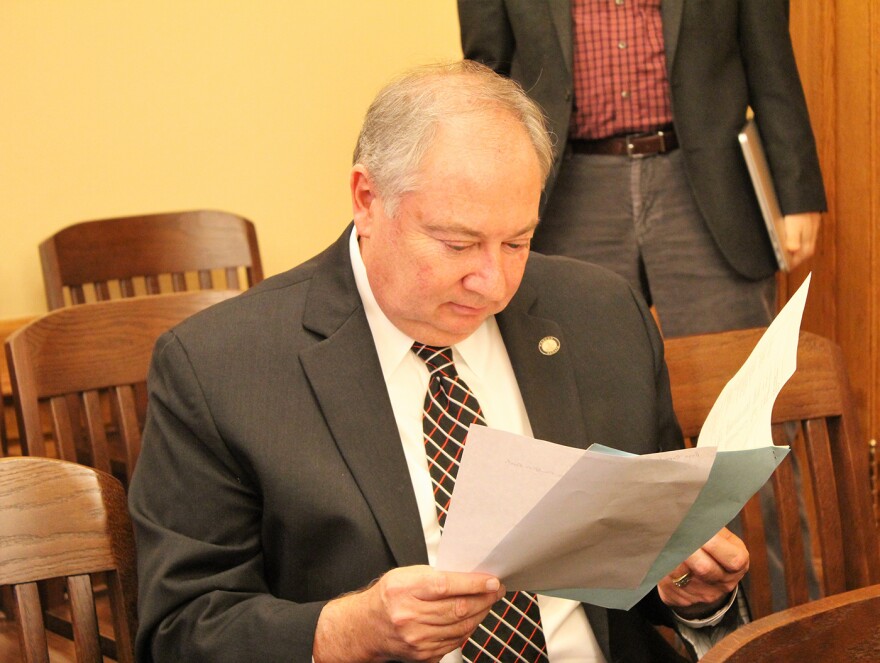The group of experts tasked with forecasting how much Kansas will collect in taxes raised their two-year estimate by $225 million after meeting Thursday to compare notes on the performance of key sectors of the state economy.
That’s better than the trend of downward revisions in recent years but not the robust increase that some lawmakers who voted to repeal Gov. Sam Brownback’s 2012 income tax cuts were hoping for.
“Obviously, this better than going the other way,” said Sen. Laura Kelly, of Topeka, the ranking Democrat on the Senate’s budget-writing committee.
But, Kelly said, it’s well short of what lawmakers will need to comply with yet another Kansas Supreme Court order to boost funding for public schools and to make a looming deferred payment to the state employee pension fund.

The message from Senate Majority Leader Jim Denning, an Overland Park Republican, was much the same.
“There’s not that much wiggle room,” Denning said, saying that years of revenue and budget problems have created “infinite demands” on what are still limited resources.
“We have many, many resource needs,” he said.
Those include restoring cuts to the state highway fund, from which lawmakers will continue to borrow through the remainder of this budget year and the next.
The higher estimate anticipates increases in sales and corporate tax receipts. The forecasting group made no change in its estimate for individual income taxes, preferring to wait and see what comes in from business owners exempted by Brownback’s tax plan who must resume paying taxes on their pass-through, or non-salaried, income.
If the estimates are on target the the state would have ending balances of $380 million in the current fiscal year and about $475 million the following year.
However, ending balances of that size would likely be tempting targets for lawmakers needing additional cash to increase funding for public schools, maintain state highways and shore up the state employee pension plan.
Mixed signals
Sam Williams, secretary of the Kansas Department of Revenue, said increasing sales and corporate tax collections are indications “of an improved economic climate taking root.”
There also are some warning signs in the data.
“There are certain sectors that are showing positive signs of growth. There are others, like the agriculture and energy sectors, that continue to struggle,” said Shawn Sullivan, Brownback’s budget director.
The struggles of those two key sectors of the Kansas economy are cause for concern, said Raney Gilliland, director of the Kansas Legislative Research Department.
“The value of Kansas crop production in 2017 is likely to be at its lowest level since 2009,” Gilliland said, noting that low commodity prices were depressing land values and making it harder for farmers to access operating capital.
Cautious projections
The picture is even bleaker for the oil and gas industry. Low prices and rapidly declining natural gas production in southwest Kansas are dramatically reducing severance tax revenues. Collections that totaled $125.8 million as recently as 2014 will drop to $37.5 million next year and $30 million the year after, according to projections.
The forecast also anticipates a reduction in both personal income and the state’s gross domestic product.
The experts see a disconnect between the rising sales, income and corporate tax receipts that Williams said were signs of an improving economy and the factors depressing wages and the state’s economic output.
“I think that’s one of the reasons we are somewhat cautious in the projections,” Gilliland said.
Jim McLean is managing director of the Kansas News Service, a collaboration of KCUR, Kansas Public Radio, KMUW and High Plains Public Radio covering health, education and politics. You can reach him on Twitter @jmcleanks. Kansas News Service stories and photos may be republished at no cost with proper attribution and a link back to kcur.org.






